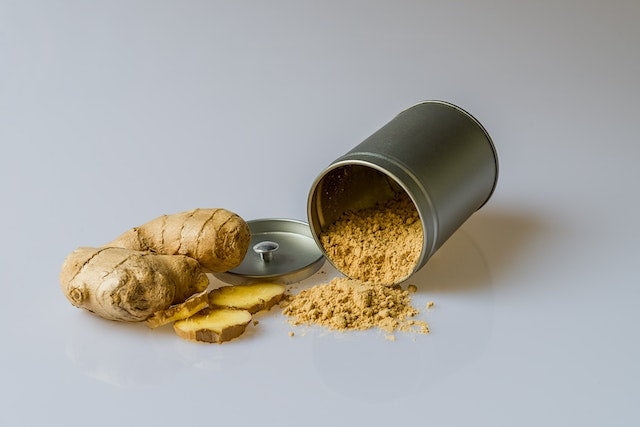Ginger, a pungent and aromatic root widely used in traditional medicine and culinary practices, has gained recognition for its numerous health benefits. Among its impressive array of properties, ginger's positive impact on hormone health stands out. Let's explore the fascinating link between ginger and hormones, shedding light on how this humble spice can play a vital role in supporting hormonal harmony.
- Ginger: A Nutrient-Rich Powerhouse
Ginger (Zingiber officinale) is a rich source of bioactive compounds, including gingerols, shogaols, and paradols. These compounds contribute to ginger's anti-inflammatory, antioxidant, and antibacterial properties, making it a potent ally for overall health and well-being.
- Balancing Cortisol Levels
Cortisol, the stress hormone, plays a crucial role in the body's stress response. Chronic stress can lead to hormonal imbalances, impacting various physiological functions. Studies suggest that ginger may help modulate cortisol levels, promoting a balanced stress response and reducing the negative impact of chronic stress on hormones.
- Supporting Thyroid Function
The thyroid gland produces essential hormones that regulate metabolism, energy levels, and overall well-being. Imbalances in thyroid hormones can lead to various health issues. Emerging research indicates that ginger may have a positive impact on thyroid function, helping to support the production and regulation of thyroid hormones.
- Insulin Sensitivity and Blood Sugar Regulation
Maintaining stable blood sugar levels is crucial for hormonal health, especially in relation to insulin, which regulates blood sugar. Studies suggest that ginger may enhance insulin sensitivity, supporting more efficient blood sugar regulation and potentially benefiting individuals with insulin resistance.
- Anti-Estrogenic Effects
Imbalanced estrogen levels can lead to a range of health concerns, particularly for women. Some research suggests that ginger may have anti-estrogenic properties, helping to promote balanced estrogen levels in the body and supporting overall hormone equilibrium.
- Enhancing Reproductive Health
For centuries, ginger has been used to support reproductive health in various traditional medicine practices. Its potential to improve blood flow and reduce inflammation can be beneficial for both male and female reproductive systems, promoting hormonal health and fertility.
- Alleviating Menstrual Discomfort
Women experiencing menstrual discomfort often turn to ginger as a natural remedy. Its anti-inflammatory properties may help reduce menstrual pain and cramping, providing relief during the menstrual cycle.
- Mood Regulation
Hormonal imbalances can affect mood and emotional well-being. Ginger's potential to reduce inflammation and support neurotransmitter function may indirectly contribute to mood regulation and emotional balance.
Ginger's remarkable impact on hormone health makes it a valuable addition to a balanced diet and wellness routine. Its ability to balance cortisol levels, support thyroid function, regulate blood sugar, and offer anti-estrogenic effects showcases its versatile benefits for hormonal harmony.
Incorporating ginger into daily meals, such as in teas, soups, stir-fries, or smoothies, is a delicious way to harness its potential hormone-balancing properties. While ginger offers substantial benefits, it's essential to maintain a holistic approach to overall health, including a well-rounded diet, regular physical activity, stress management, and sufficient sleep.
As with any specific health concerns or conditions related to hormones, individuals should consult with healthcare professionals or registered dietitians for personalized advice and recommendations based on individual health needs and goals. Embrace the power of ginger and unlock its full potential in supporting hormonal health for a thriving and balanced life.
